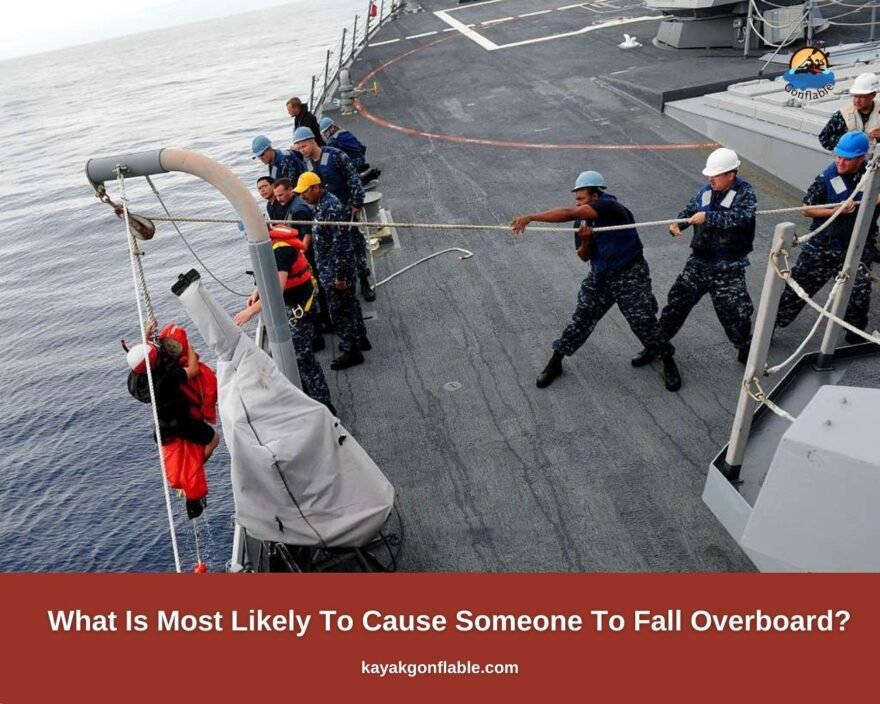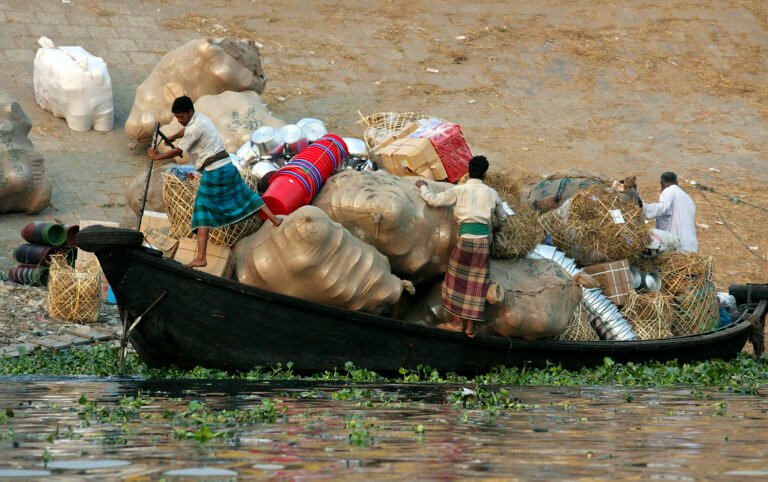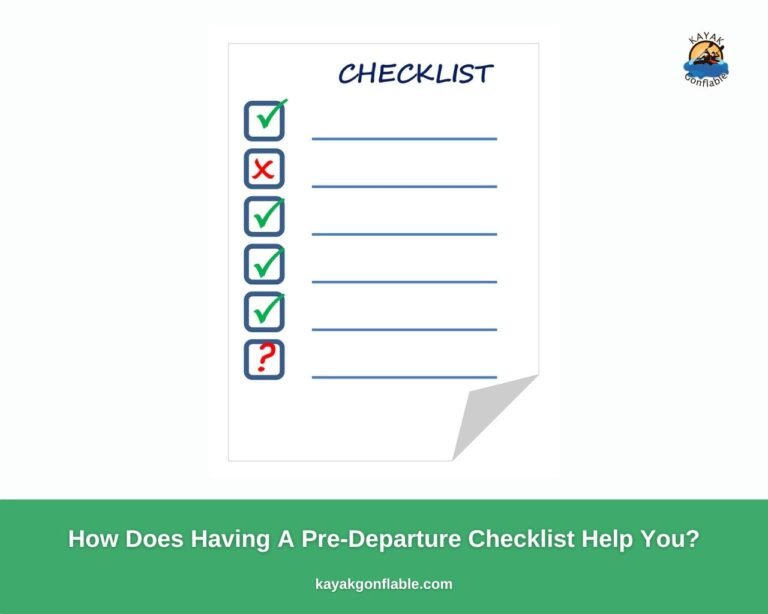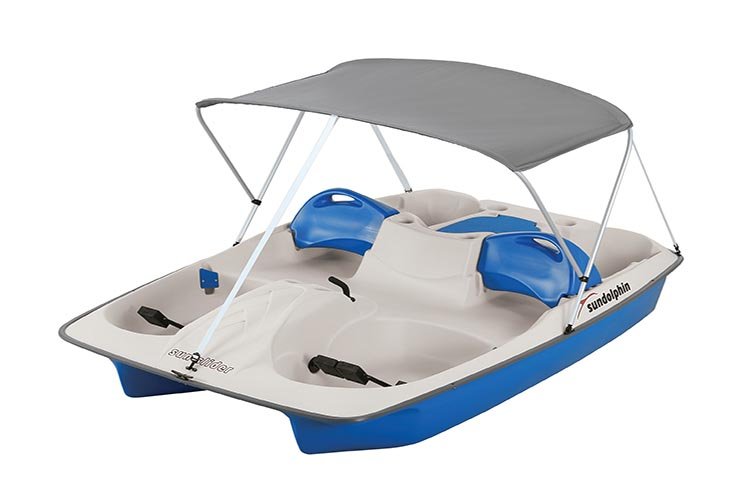What Is Most Likely To Cause Someone To Fall Overboard?

What does it mean to fall overboard?
Falling overboard is considered an accident. It can happen when someone falls from a boat, climbs out of a lifeboat, or dives into the water from a vessel. Falling overboard can be caused by many things, including negligence or simple carelessness on the part of the individual.
Falling overboard also occurs when there is an uncontrolled loss of engine power or when someone falls overboard in a storm or during a rescue operation. It can lead to hypothermia, drowning, or other dangers.
Aboard a cruise ship, there are numerous areas for passengers to explore. While enjoying the views from the top decks, or taking a dip in the pool, it’s important to be aware of the hazards that exist.
One of those dangers is falling overboard. In this article, we will discuss what is most likely to cause someone to fall overboard and how to avoid it.
Causes of people falling overboard
There are numerous causes of people falling overboard, but some are more common than others. Some of the main causes include:
- Slip and fall accidents
Slips and falls are a common cause of people falling overboard. They account for about 20% of all overboard fatalities. Many people think that when someone falls overboard, they have committed suicide.
In reality, most slips and falls are accidental and the victim simply falls overboard while trying to regain their balance. The deck surface can be slick from rain or saltwater, and the victim may not be aware of the hazard.
In addition, a person can slip and fall while attempting to climb down a ladder or steps. Many factors such as weight, clothing, and weather, can contribute to someone slipping and falling into the water.
Injuries that can occur from these accidents include head injuries, spinal cord injuries, and even death. The best way to avoid these types of accidents is to take caution when working or enjoying yourself onboard a ship.
- Treacherous current or wind
The treacherous currents flowing through the Gulf of Mexico are known for their ability to quickly sweep people overboard and into dangerous waters. However, in some cases, the person may have fallen overboard due to the wind.
Those who are not wearing a life jacket or who do not have adequate flotation devices may quickly find themselves in danger. In either case, it is paramount to be aware of the dangers associated with dangerous currents and know how to respond if you find yourself in a situation where you might fall overboard.
- Falling due to inebriation
Falling overboard as a result of intoxication is a tragic occurrence that can happen to anyone. The consequences of falling overboard can be serious and even fatal, making it one of the leading causes of accidental death on vessels.
Falling overboard from a boat can be caused by many factors, including being drunk or unconscious, but the main cause is often alcohol intoxication. Alcohol impairs balance and coordination, leading to an increased chance of falling overboard.
Inebriation also makes people less able to handle dangerous tasks like climbing back aboard when they fall overboard. People who have been drinking should avoid being on the boat if they are not completely sober, and should never drink and operate heavy machinery.
- Being pushed overboard
A common cause of someone falling overboard is being pushed overboard. With the increase in maritime security, there has been an increase in incidents in which crew members are pushed overboard as a means of committing suicide or assassination.
This is often done by throwing someone over the side of the ship into the sea. Pushing someone overboard with intent to cause their fall can be a homicide charge, depending on the state. If the victim falls into the water and dies as a result, involuntary manslaughter may be charged.
If the victim only falls into the water and survives, then involuntary manslaughter may not be charged. Though pushing someone overboard can be an accident, it is often intentional.
- Psychosis
Psychosis is a mental disorder in which a person experiences a break from reality. A person with psychosis may have difficulty distinguishing between what is real and what is not and may behave unusually or bizarrely.
This can lead to them falling overboard from a ship, plane, or other vehicle. Psychosis is a relatively rare cause of accidental death, but it can be deadly if not treated quickly.
- Injury or illness
The likelihood of someone falling overboard as a result of an injury or illness is high. A person can become ill or injured while at sea and may fall overboard as a result. This can lead to serious consequences for the individual, including death.
According to the Centers for Disease Control and Prevention, in 2009 there were 1,515 injuries and illnesses associated with falling overboard, resulting in 405 fatalities. Many of these tragedies could have been prevented if the individuals had been wearing lifejackets.
How to avoid falling overboard
No one wants to fall overboard. Every sailor knows that falling overboard can be fatal, but it can happen in moments of inattention. The points below will help you avoid falling overboard:
- Stay aware of your surroundings.
According to the Coast Guard, staying aware of your surroundings is one of the best ways to avoid falling overboard.
The Coast Guard recommends scanning the area around you for potential hazards, such as objects in the water, boats, people, and flashing lights. If you see anything that could cause you trouble, make sure to take action and stay safe.
- Keep a close eye on your boat’s heading and course.
When out on the open water, it is important to keep a close eye on your boat’s heading and course to avoid falling overboard.
This is especially important when sailing in unfamiliar waters or during bad weather. By constantly monitoring these factors, you can ensure that you are staying safe and sound while out on the water.
- Watch for waves or currents that could lead you overboard.
If you’re out on the open water, be aware of waves and currents that could throw you overboard. Watch for waves and currents that are larger than the ones near shore, and be prepared to take action if one of these waves or currents appears to be heading in your direction. If you do fall overboard, remember to stay calm and float until help arrives.
- Stay calm and avoid making any sudden movements.
Anyone who has ever been at the mercy of the ocean knows that one of the scariest things about it is that it can be so unpredictable. You never know when a wave will sweep you overboard, or when a gust of wind will push you off course.
If you are ever in this situation, the best thing to do is to stay as calm as possible and avoid making any sudden movements. Keeping your head will let you make smart decisions and ensure your safety.
- Know your limits.
When out on the water, it is important to know your limits. If you are not comfortable with your boat’s speed or feel like you might lose balance, do not try to exceed those limits. This can save you from a trip overboard from your vessel.
Overreaching your limits can lead to falls, injuries, and even death. When enjoying the outdoors, always be aware of your surroundings and maintain a safe distance from other boats.
- Don’t drink on the water.
There are many reasons to not drink while floating on the water. One of the most common reasons is that it can lead to falling overboard. If you are drinking and fall overboard, you may become disoriented and unable to find your way back.
Alcohol can make it difficult to stay afloat and can even cause unconsciousness. By avoiding alcohol while sailing, you can reduce your chances of drowning. Additionally, if you do drink, you will lose water weight which can increase the chance of dehydration.
- Avoid treacherous waters.
Boaters who are unfamiliar with treacherous waters may mistakenly believe that they can safely navigate around any obstacles in the water. However, even small waves and ripples on the surface of a river or lake can create dangerous currents.
By staying aware of these dangers and avoiding treacherous areas, boaters can avoid falling overboard and ending up in danger.
- Wear a life jacket at all times.
Wear a life jacket at all times when boating, kayaking, or sailing. By wearing a life jacket while on the water, you can be more prepared in the event of an accident. No one wants to fall overboard but it can happen and falling overboard might be deadly; a life jacket will keep you afloat till aid arrives.
- Know how to swim before being on the water.
Swimming is a great way to survive falling overboard. A person’s ability to swim can help avoid fatal accidents so learn to do so before getting on the water. Being able to swim and heading in the direction of shore can keep you alive if help tarries.
There are a few different ways to learn how to swim. One way is to take swimming classes. Another way is to find a pool and practice swimming by yourself. By mastering some basic swimming techniques, you can be more confident while exploring the waterways around you.
Many things can cause someone to fall overboard. While some of these things are accidental, others are the result of negligence or intentional actions. It is important to be aware of these dangers and take the appropriate precautions to help keep yourself and your loved ones safe.
Everyone should be familiar with the safety procedures for their particular boat, and they should also always wear a life jacket when on the water.
Frequently Asked Questions
What should you always do when a person falls overboard?
When you see a person overboard, the first thing you should do is activate your emergency response plan. Next, search for the person and notify the Coast Guard.
Once you have located the person, help them into safety and call for medical assistance. Finally, keep an eye on the person until rescue arrives.
What should you do if you fall overboard into cold water?
If you fall overboard from a boat or ship into cold water, do the following:
- Stay calm and reassure yourself that you are going to be okay. Avoid panic and exhaustion.
- Swim to the surface as quickly as possible and wait for help.
- Float with the current.
- Keep your head up and your arms and legs spread out to provide buoyancy.
- Raise your hand if you see a boat or swimmer nearby.
- Don’t struggle to get back on board; wait for help.
- If you lose consciousness, don’t fight to come to shore – let go and hope for the best.
What should you do if a passenger on your boat falls overboard?
If you’re a captain of a small boat, one of the most important safety precautions you take is making sure everyone on your vessel knows how to respond if someone falls overboard.
This includes knowing the appropriate response for different situations, such as when someone falls overboard in calm water or during a storm.
If a passenger falls overboard from your boat, there are a few things you should do. First, stay calm. If the person is in water that is at or below freezing, shock can kill them immediately.
Next, shout for help and remember the Coast Guard search and rescue guidelines. If the person is in danger of drowning, you will need to get them out of the water as quickly as possible.
If the person is not in danger of drowning, try to keep them calm and reassure them that help is on the way. If there is someone on the boat who can row or sail, get them in the boat and start rowing towards land.
What should you do if a passenger on a small boat falls overboard?
If a passenger falls overboard from a small boat, there are several things to do to ensure their safety. The first is to shout for help.
If there is another person on the boat, they should take up a fishing net and search for the person. If they are not found within five minutes, the other person on the boat should raise the alarm and contact emergency services.
Once an emergency crew is dispatched, they will be able to launch a lifeboat and rescue the person. If you can keep the person afloat until help arrives, be sure to administer first-aid until help arrives.
If you can’t keep the person afloat, try to make a distress signal with a light or sound device. Finally, if you are in danger yourself, try to get as close to land as possible and wait for help.
What should you do to reduce the risk of falling overboard?
- There are a few things you can do to prevent falling overboard, such as keeping your hands and arms close to your body, wearing a life jacket, and being aware of your surroundings.
- If you do fall overboard, stay calm and use your resources to stay afloat. Failing to do so could result in drowning or hypothermia.
- Do not hang onto the side rail to stay aboard your deck – this may result
How does someone fall overboard on a cruise?
On a cruise, it’s common to see people fall overboard. This happens when someone falls overboard and their body goes below the waterline. The person can then no longer breathe and will die if they don’t get help soon.
People can fall overboard in several ways, including accidentally tripping and falling into the water, getting pulled out of the boat by a current, or being pushed overboard by another passenger.
Occasionally, people might fall overboard because they are drunk or high and lose their balance. Finally, if the ship’s deck or railing is damaged, people could fall overboard.
What is the greatest danger a man in the water is likely to suffer from man overboard?
While drowning is the biggest danger a man in the water is likely to suffer from, hypothermia is another serious risk.
Hypothermia can occur when a person’s body temperature falls below 95 degrees Fahrenheit. In cold water, this can happen rapidly and lead to serious injury or even death.
When performing a person overboard rescue, which equipment should you use to recover the person in the water?
When performing a person overboard rescue, the first and most critical thing to do is to locate the person in the water. This can be done by using a lifejacket or flotation device to determine if the person is wearing one and if they are floating.
Once you have located the person, the next step is to assess their condition. If they are not wearing a lifejacket or flotation device, then you will need to provide them with one before beginning the recovery process.
Certain pieces of equipment can be used to recover the person in the water. These items include a lifejacket, an inflatable raft or floatation device, and a rescue swimmer. A lifeboat might also be necessary.
What is the first thing you must do when involved in a boating accident?
When involved in a boating accident, the first thing you must do is summon help. Whether you are the vessel operator or a passenger on board, don’t try to take charge. Remain calm and assess the situation.
If you are injured, place yourself in a safe position and don’t move until help arrives. Finally, take photographs and/or video of the scene to document what happened.
What is the best way to minimize this risk of drowning while boating?
Water safety is a major concern for boaters, especially when it comes to drowning. To minimize the risk of drowning while boating, it is important to know the signs and symptoms of drowning and what to do if you or someone you are with is in danger.
Boating safety kits can include items like lifejackets and flares to help prevent drownings. The best way to prevent drowning is to wear a life jacket and keep a close eye on children who are playing near the water.
Another way to reduce the risk of drowning is to use a designated swimming area for boats. Finally, always stay aware of your surroundings and never go out on the boat if you are feeling unwell.
What should you do first if you see a man fall overboard?
If you see a man fall overboard from a ship, the first thing you should do is call for help. Remain calm and assess the situation. If you can reach the man and he is wearing a life jacket, try to pull him back into the ship.
If you are unable to reach him, stay put and wait for help. If there is no danger to yourself or others, jump into the water and start swimming towards the man.
What is a man overboard marker?
A man overboard marker, also known as a lifeline or raft emergency device, is a safety device used on boats to rescue people who become lost at sea. It is a long, thin tube of plastic with a handle at one end and afloat at the other.
The man overboard marker is tethered to the boat by a cable and floats at a predetermined depth, typically 3-6 feet below the surface. When a boat is in danger of capsizing, the crew can throw the man overboard marker over the side, and then use it to haul the person back aboard.
What is overboard on a ship?
Overboard is the term used to describe anything that is thrown overboard from a ship. This could include objects such as garbage, trash, or furniture.
Overboard items can injure or kill someone if they fall into the water. It is important to be aware of what is overboard on a ship so you can keep everyone safe.
What happens during a man overboard?
A man overboard occurs when a person falls overboard from a vessel and cannot be saved. When a man overboard occurs, the crew is immediately notified and begins their emergency response plan.
This includes activating the lifeboat, lowering the boat, and taking stock of the situation. If there are any survivors, they will be brought back on board. In the worst-case scenario, where there are no survivors, the crew will perform a search for the body.
What happens if you fall off a Navy ship?
If you fall off a Navy ship, your best chance of survival is to enter the water as quickly and as deeply as possible. If you are wearing a lifejacket, it will help keep you afloat.
If you are not wearing a lifejacket, hold on to something nearby – a railing, the side of the ship, or someone else. Don’t fight against the waves; they will pull you under. Use your arms and legs to swim towards shore.






